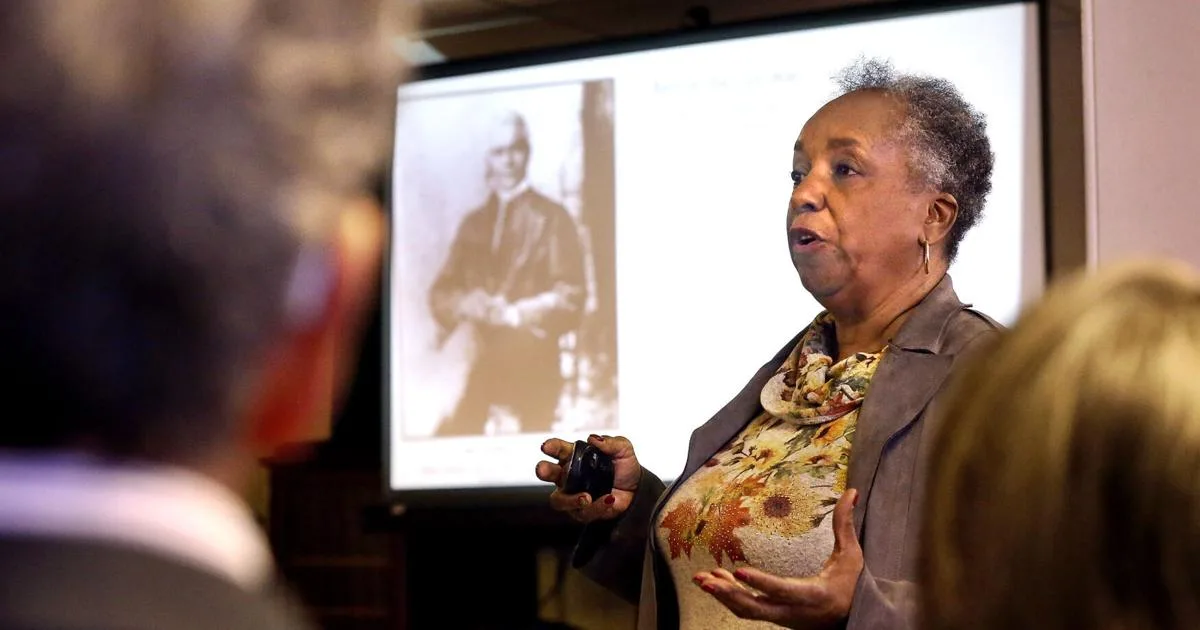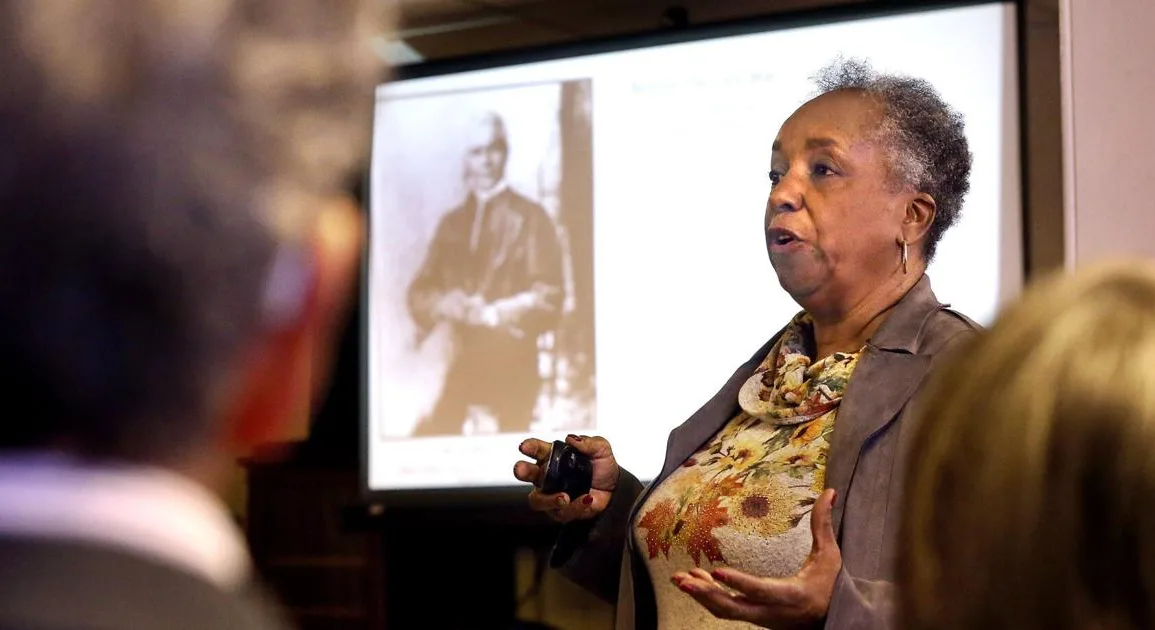
WINCHESTER — When you think of the people who were instrumental in creating and shaping Winchester, you probably think of folks like George Washington, James Wood, Abraham Hollingsworth, Charles Broadway Rouss and John Handley.
But what about Robert Orrick?
Orrick was born a slave but went on to become a successful businessman, and he returned much of his wealth to the community to help former slaves as they transitioned to freedom following the Civil War.
Despite his many contributions to his peers, Orrick remained mostly unknown outside of the local African American community for most of the 20th century. That has changed thanks to the work of Winchester’s Black History Task Force, a group of residents dedicated to researching and sharing stories about the accomplishments of Black people in Winchester during a period in American history when they were persecuted and oppressed.
Brenda Nelson of Winchester is a member of that committee and has written several articles about Orrick and the cemetery he founded for African Americans in Winchester — Orrick Cemetery in the 500 block of South Braddock Street. Now, Nelson has leveraged her expertise and written a book, “The Life and Times of Robert Orrick,” which will be available for purchase shortly after Thanksgiving.
On Wednesday morning, Nelson gave a free presentation on Orrick’s life during a gathering at historic John Mann United Methodist Church in downtown Winchester. Nearly 50 people squeezed into a small activity room to hear about the man who was born enslaved in 1841 but defied the odds to become a successful entrepreneur by the time he died in 1902.
Aided by a progression of photos showing important historical documents related to Orrick, Nelson told the group that Orrick was born on the property of slave owner Joseph Kean. In exchange for Orrick’s promise to take care of Kean for the remainder of his natural life, Kean agreed to free Orrick once the owner passed away.
During Orrick’s time as a slave, Nelson said, he enjoyed liberties typically not awarded to enslaved persons. Kean allowed Orrick to own and operate a livery business in downtown Winchester, preach in local Black churches, marry a woman named Amanda King and, utilizing King’s status as a free woman, buy property.
Nelson said it was highly unusual for Orrick to receive such considerations from Kean because, prior to and during the Civil War, enslaved Blacks were not allowed to be business or property owners, or even have a legally binding marriage.
“I don’t know what it was about Orrick that he seemed to be favored,” Nelson said.
When Kean died in 1863, he kept his word and put it in his will that Orrick was now free.
Robert and Amanda King purchased a house at 119 W. Cecil St. in Winchester and raised five children. While four of the children grew up to be successful and well-educated adults, that wasn’t the case with William Orrick, an alcoholic who had frequent run-ins with the law before alcohol killed him in 1907.
“William had issues,” Nelson said. “He was always getting in trouble.”
Robert Orrick continued to operate his livery business after the Civil War ended and accumulated wealth with a series of additional jobs and investments. For example, Nelson said he was contracted to be a mail carrier immediately after the war ended and was paid $525 a year, “which was a nice little sum in 1865.”
Orrick also operated a twice-a-week stagecoach from the Taylor Hotel in Winchester to Romney, West Virginia, rented rooms in one of his buildings to the Freedman’s Bureau for use as a school and offices, bought land, started a farm, donated materials to rebuild a church in Stephens City that had been destroyed during the war and purchased land adjacent to Winchester’s only cemetery for Blacks so the burial ground that he had voluntarily cared for and maintained for years could expand. The cemetery was renamed Orrick Cemetery in his honor.
Nelson noted that an advertisement in the late 1800s for one of Orrick’s businesses included a telephone number, “which back then was kind of nice” because phones could only be afforded by people who were well off.
She also pointed out that Orrick signed his name with an X for the first half of his life, but spelled it out fully in the years after the Civil War. Nelson said she believes Orrick taught himself to read and write, two skills that were forbidden for enslaved people in the South.
Amanda Orrick died in 1889. In her final weeks, she was cared for by her sister, Harriet King. In 1892, three years after his wife’s passing, Orrick married Harriet King. The couple had no children.
In 1891, shortly before marrying Harriet King, Orrick purchased a home at 15 S. Braddock St. that still stands today.
Robert Orrick needed to be cared for himself as the 20th century began, so he entrusted son-in-law Robert Mitchell to take over his business operations. Those ventures continued to thrive even after Orrick died in 1902.
In June 2022, the Black History Task Force compelled the Virginia Department of Historic Resources to place a historical marker in front of the Orrick home on South Braddock Street. In the near future, Nelson said the group hopes to place a similar marker at Orrick Cemetery.
“The city is 100% in favor of that marker,” Winchester Planning Director and avid local historian Tim Youmans shouted from the back of the room during Nelson’s presentation on Wednesday.


